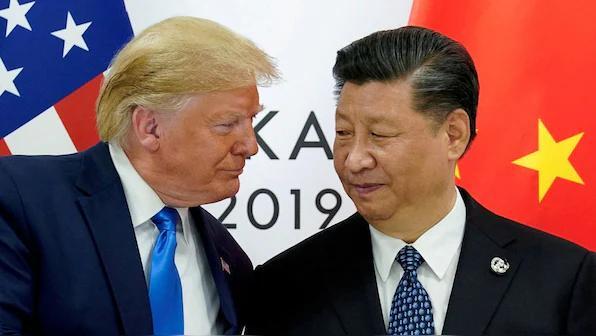
China Refuses to Join Denuclearisation Talks with US & Russia
The ongoing tensions between the United States, Russia, and China have taken another turn, with China rejecting President Donald Trump’s call to join trilateral denuclearisation talks. The Chinese Foreign Ministry Spokesperson, Guo Jiakun, stated that the expectation of China’s participation in such talks is “neither reasonable nor realistic”. This decision comes as a surprise, given the growing concerns over the nuclear capabilities of these three major world powers.
In recent months, the world has been witnessing a series of statements and actions from the leaders of these countries, which have raised concerns about the potential for a nuclear war. The US and Russia have been engaged in a series of high-stakes diplomatic talks, with the aim of reducing their nuclear arsenals. However, China has been noticeably absent from these discussions.
According to reports, US President Donald Trump had called for China to join the talks, citing the country’s growing nuclear capabilities. China, however, has maintained that it is not necessary for it to participate in the negotiations, given its different level of nuclear capabilities compared to the US and Russia.
In a statement, Guo Jiakun said, “China and US are not at the same level at all in terms of nuclear capabilities. We have always advocated for a nuclear-free world, but the path to achieving this goal is different for different countries.” He added, “China’s nuclear capabilities are for defensive purposes only, and we will not engage in a nuclear arms race.”
This decision by China has sparked concerns among experts and analysts, who fear that the lack of participation by China in the denuclearisation talks could lead to a stalemate in the negotiations. The US and Russia have been pushing for China to join the talks, citing the country’s growing influence in the international arena.
The US has been critical of China’s nuclear capabilities, with some experts warning that the country’s increasing military spending could lead to a nuclear arms race. The US has also accused China of not doing enough to prevent the spread of nuclear weapons in the region.
China, on the other hand, has maintained that it is committed to the goal of a nuclear-free world, but that it cannot join the talks without being recognized as a major nuclear power. The country’s Foreign Minister, Wang Yi, has stated that China is willing to work with the US and Russia to reduce the risk of a nuclear war, but that it cannot participate in the talks without being treated as an equal.
This development is a significant setback for the efforts to reduce the risk of a nuclear war, and could have far-reaching implications for global security. The lack of participation by China in the denuclearisation talks could lead to a stalemate in the negotiations, which could be exploited by other countries to pursue their own nuclear programs.
In conclusion, China’s decision to refuse participation in the denuclearisation talks with the US and Russia is a significant development that has raised concerns among experts and analysts. The country’s Foreign Ministry Spokesperson has stated that the expectation of China’s participation in the talks is “neither reasonable nor realistic”, citing the country’s different level of nuclear capabilities compared to the US and Russia. This decision could have far-reaching implications for global security, and could lead to a stalemate in the negotiations.



